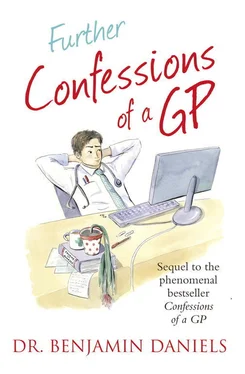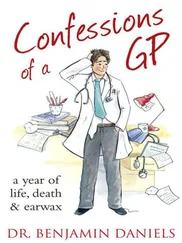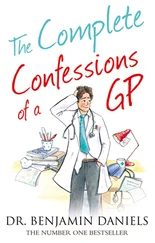We were halfway through the interview. The next set question was to ask what he had achieved during that summer. The marking scheme gave points for voluntary work and anything that indicated a breadth of extra-curricular interests. The last girl who’d been in had told us about her charity work at a local hospice and how she had passed her grade-eight violin exam with distinction; the girl before told us of the fantastic sense of achievement she had felt on completion of her Duke of Edinburgh gold award. The young lad sitting in front of us looked completely flummoxed by the question and as far as I was concerned, rightly so. When I was 17, I spent the entirety of my summer holidays playing Tomb Raider on my PlayStation, getting stoned and masturbating. Charity work and music exams had been the last thing on my mind. If I could state my greatest achievements of that summer it was learning to skin up and having a moderately successful fumble in the dark with a girl I met at a music festival. By the uncomfortable dithering from the young lad in front of us, I got the impression that his summer had been equally unproductive.
‘Did you go away anywhere, perhaps?’ I prompted in an attempt to end the awkward silence.
‘Oh yes, I went to Glastonbury with my mates.’
‘Great, did you have a good time?’
‘Yeah, it was the best,’ he said, breaking into a big smile.
And with that I scored him maximum points on my marking sheet. As far as I was concerned, there was no reason why spending a summer practising the violin or orienteering on Dartmoor would make anyone a better doctor than going to a music festival.
After that he relaxed a bit, and as the interview went on he showed himself to be charming, intelligent and equipped with the kind of qualities we were looking for. Even my fellow interviewers were won over and we decided to offer him a place.
Taking benefits away from addicts
Crackhead Kenny had come back to see me. He bashfully apologised for storming out on me last time he was in; I told him that I accepted his apology, and I meant it. There’s no room in this job for holding grudges and I was pleased that Kenny had decided to stick with me as his GP rather than move to another practice in an attempt to find a doctor who would prescribe him what I had refused.
Kenny was here to ask me for a sick note and it was a timely request as that very morning it had been reported that the government was threatening to stop heroin addicts from being able to claim incapacity benefit. About a hundred of my patients are heroin users and they are all signed off work. The government spokesman pointed out that it was unfair that hardworking taxpayers were paying for the addictions of others. This may well be true, but is an attempt to force heroin users such as Kenny into gainful employment really a viable option?
We recently advertised for an admin assistant at our surgery. It is a low paid, unskilled, part-time position that requires no previous experience and no great physical exertion. Such is the nature of the times, we had more than 60 applicants, most of whom were greatly overqualified for the post. None of the applicants were intravenous heroin users, but if any were we wouldn’t have shortlisted them. If we wouldn’t consider employing a heroin user, who does the government think will? With the exception of the odd ailing rock star, I am yet to hear of a gainfully employed injecting heroin addict.
Heroin is an awful, all-consuming drug that destroys the personality of the person behind the habit. The next fix becomes more important to the user than food, shelter and, most sad of all, the people who care about them most. It is not a lifestyle that can easily coexist with a nine-to-five job. As Kenny sits in front of me, I don’t even consider not signing his sick note. There is no way in the world that he could hold down a job in his current state. The government is very welcome to switch Kenny and addicts like him from incapacity benefit to jobseeker’s allowance, but it would simply be an expensive and time-consuming PR exercise.
If the government chooses to take it one step further and remove all drug users’ benefits, the result would be an almighty hurrah from some, but it would simply mean a large number of the most vulnerable members of our society being made homeless and pushed further into crime, prostitution and begging as they looked for alternative ways to feed their habits. The extra burden placed on the criminal justice system would almost certainly end up costing far more than the relatively meagre hand-outs that heroin users currently receive in the form of incapacity benefit. It is much too simplistic to think that if we took Kenny’s benefits away from him, he would be forced to stop taking drugs, find a job and instantly become a more positive and worthwhile contributor to society.
Our local drug and rehab services are very good, but although most of my patients who use heroin are actively enrolled within substance misuse services, very few will successfully turn their lives around. Treating heroin addicts punitively with prison sentences doesn’t seem to work either, so it would appear to me better to try to work out why people fall into heroin addiction in the first place. Most of us experiment with drugs to some level or another in our youth, but even during my own sustained and enthusiastic period of adolescent experimentation, I never got anywhere near a place where injecting a syringe full of heroin into my arm jumped out as being a good idea.
Kenny had a 10-minute appointment with me that day and it took less than one minute to fill in a sick note. I decided that it might be an opportunity to ask him how he became an addict. The story Kenny told me was a familiar one. As with many of my patients who use heroin, he seemed to take those extra few steps into harder drugs and full-scale addiction after a fairly miserable start in life. Heroin is often an escape from the grim realities of life, and among my patients child abuse and growing up in care seem to pop up time and time again as the most damaging experiences addicts are trying to escape from.
As a doctor, I try not to get carried away with the emotion and morality of what I see because it interferes with the practical aspects of the job. Many of my patients have self-inflicted injuries and illnesses and whether they are due to heroin, alcohol, smoking or falling off ponies, offering my indignation benefits no one. In my eyes politicians have no option but to take the same approach. I am dealing with addiction on an individual basis while they have to consider it on a more national scale, but ultimately the realities are the same.
Heroin dependence exists and is hugely detrimental to everyone. Vitriolic sound bites about the cost to taxpayers might make favourable headlines in the right-wing media, but they don’t make the problem go away. There will always be some people who fall prey to heroin. Whether we view this as the fault of society or the individual is meaningless. As far as I’m concerned, the real issue is trying to prevent vulnerable people like Kenny from plunging into addiction in the first place rather than seeking to blame them once they have.
It was rare to see Tilly with both of her parents. They had split up the previous year and, although they were still being forced to live together due to the negative equity on their house, the break-up was less than amicable.
Tilly was sitting between them and she didn’t look well. She was thin and pale, and her parents were clearly sufficiently worried to try to put their differences aside for long enough to come together to see me.
‘Well, Dr Daniels, Tilly’s not been well since he took her camping that time. I told him not to take her but he didn’t take any notice.’
Читать дальше
Конец ознакомительного отрывка
Купить книгу











![Benjamin Franklin - Memoirs of Benjamin Franklin; Written by Himself. [Vol. 2 of 2]](/books/747975/benjamin-franklin-memoirs-of-benjamin-franklin-wr-thumb.webp)
![Benjamin Franklin - Memoirs of Benjamin Franklin; Written by Himself. [Vol. 1 of 2]](/books/748053/benjamin-franklin-memoirs-of-benjamin-franklin-wr-thumb.webp)